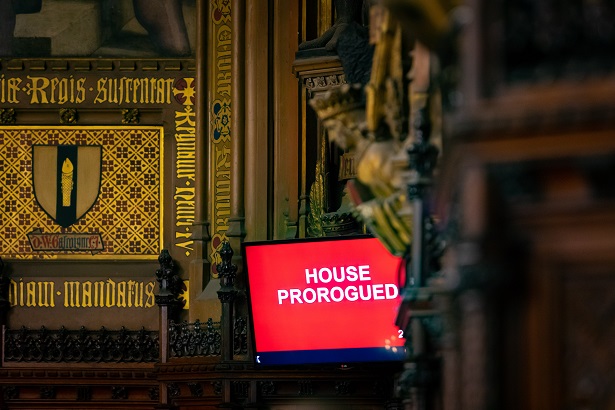8 October 2019 | UK NEWS
According to sources in Downing Street this morning, a successful Brexit deal between the UK and the EU is looking less and less likely following a telephone call between Prime Minister Boris Johnson and German Chancellor Angela Merkel. During the call, which began around 8am, Mrs Merkel is reported to have informed the PM that no deal would be possible if it did not include arrangements for Northern Ireland to remain within the EU’s customs union. The mood on both ends of the conversation, by its end, was said to be “pessimistic”. However, Wolves understands that this was not officially confirmed.
Under Mr Johnson’s plans, Northern Ireland would remain in a single customs territory with the United Kingdom, while departing the EU’s customs union along with the rest of the UK on October 31st. However, it would continue to align with EU agri-food regulations as though it had remained a member of the EU Single Market, unless consent was granted in Stormont to diverge from these and adopt the UK model instead. There would be an opportunity to grant this consent once every four years; in such an event, the arrangements would change after one further year.
There is speculation in Westminster that this suggests the EU had always planned to keep Northern Ireland inside its customs union, ostensibly in an effort to avoid the return of a hard border on the island of Ireland. The President of the European Parliament, David-Maria Sassoli, met with the Prime Minister at Number 10 late this afternoon for further talks, emerging a little after 7pm to report that “no progress” had been made.
However, a European Commission spokeswoman said: “The EU position has not changed. We want a deal. We are working for a deal with the UK and in no circumstances will we accept that the EU wants to harm the Good Friday agreement. The purpose of our work is to protect it in all its dimensions and at all times.”
Elsewhere on the UK political scene, Parliament was once again prorogued this evening, with formal proceedings ending around 8:30pm. This marks the end of the longest parliamentary session since the English Civil War, running to 839 calendar days in total. Accordingly, Parliament will no longer sit until next Monday 14th October, when there will be a new Queen’s Speech to set out the Government’s legislative agenda.
The animosity that surrounded the previous prorogation on September 10th was noticeably absent this evening, with events proceeding in an orderly manner. The previous prorogation had been set for five weeks, which is longer than usual, and was subsequently ruled unlawful by the Supreme Court on 24th September. Members held up placards proclaiming “SILENCED” during those proceedings, and Opposition members refused to follow the Government benches to the House of Lords to hear the prorogation announcement. The atmosphere was said to be most uncollegiate, in contrast to today’s proceedings involving a prorogation of a mere five days, as opposed to five weeks.
This means that the ten-minute rule motion as put forward by SNP MP Pete Wishart, upon which we previously reported as being scheduled for tomorrow (Wednesday 9th October) will not now be tabled. It remains to be seen whether this motion will be put forward once more when the new parliamentary session begins next week, following the debate on the Queen’s Speech. If the customary vote on the Queen’s Speech is not passed by the House, this would normally be considered a confidence issue; however, there have now been two attempts by the Government to call a General Election that have been rejected by Parliament, so it remains unclear what such a development would signify in constitutional terms.
Following the Queen’s Speech debate, Mr Johnson will attend what could be his final European Union summit as the leader of a Member State, where it had been anticipated that any available deal would be hammered out at the last moment. This morning’s developments would appear to pour cold water over the likelihood of this happening, although we at Wolves would stress that much can change in politics inside a fortnight.
If Mr Johnson is unable to strike a deal during this last-ditch EU summit, he is obliged by the so-called Benn Act to seek an extension to the Brexit process under the terms of Article 50, either for three months until 31st January 2020, or until a future date to be determined by the European Council, unless Parliament votes either option down within two days of its announcement. However, the Government has continued to insist that it will abide by its “do or die” pledge to leave the EU on 31st October, in spite of what the law of the land appears to mandate at this time.
We will bring you further developments over the course of the week as events progress.

























